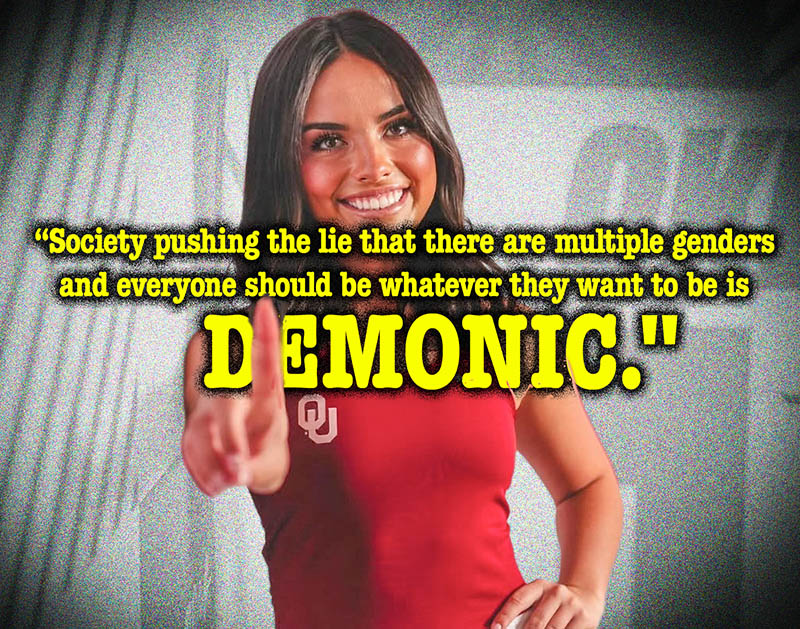Right-wing coalition targeting protections for transgender youth

Transgender students in California are facing what could be their final obstacle before being granted basic protections in the state’s public schools.
Late last month, opponents of a law that would make California the first state to mandate public schools provide equal access to all school activities, sports teams, programs and facilities for students who identity as transgender – slated to take effect Jan. 1, 2014 – turned in 614,317 petition signatures in hopes of putting the law before voters, roughly 100,000 more than the required minimum. With county registrars required to verify at least 95 percent of those signatures for a referendum to be conducted in November 2014, supporters of the landmark LGBT-rights law are expressing confidence the law will not have to face voters.
“Because often times many signatures are invalidated for various reasons, it is unknown whether the referendum will qualify,” the Support All Students Coalition, a group of LGBT-rights organizations backing the law, said in a statement. “We are not surprised that the opposition was not able to acquire a comfortable margin to repeal a law that simply makes sure all students know they can have a fair chance to succeed at school.”
In August, California Gov. Jerry Brown (D) signed the School Success and Opportunity Act into law after it was approved by California lawmakers. The legislation requires “a pupil be permitted to participate in sex-segregated school programs and activities, including athletic teams and competitions, and use facilities consistent with his or her gender identity, irrespective of the gender listed on the pupil’s records.”
The new law is similar to statewide policies in Massachusetts and Colorado that require schools to respect students’ gender identity. A broad coalition backed the legislation, including the National Center for Lesbian Rights, ACLU of California, Gay-Straight Alliance Network, Equality California, Gender Spectrum and the Transgender Law Center.
According to the Gay, Lesbian & Straight Education Network, existing California law already prohibits discrimination against transgender students, but Assembly Bill 1266 specifically calls upon public schools to respect the identity of transgender students in terms of school activities such as sports. With physical education credits a requirement for graduation, the National Center for Lesbian Rights notes that transgender students have been left without a support network in the past, which has negatively impacted their ability to graduate.
But while advocates have hailed the California law as a first of its kind in the nation, it has also galvanized a number of opponents who have voiced outrage at what they have dubbed the “co-ed bathroom law.”
Among those backing a referendum of the law is the National Organization for Marriage, which has its roots in the fight against same-sex marriage in California. Although NOM by name restricts itself to the debate over same-sex marriage, the group has injected itself into the attempt to repeal the law. NOM’s national political director, Frank Schubert, penned a column for the website RedState in August blasting “the latest craze from the left concerning something they call ‘gender identity.'”
“This is an example of what happens when politicians and activists push agenda politics, and where political correctness trumps objective reality,” Schubert continued. “No matter what any politician or activist says, there are only two genders: male and female. Nature and chromosomes determine gender, not education bureaucrats, activists or politicians.”
A month after Schubert’s column was published, NOM came out against the law and voiced its backing of the coalition opposing the law — Privacy for all Students — which Schubert is now leading.
“AB1266, the co-ed bathroom law, is a horrible attempt by activists to strip society of all gender roles and uses children as a weapon in their culture war,” NOM President Brian Brown said in a statement. “[Legislators] are forcing our school children to be exposed in showers and bathrooms to members of the opposite sex who claim a ‘gender identity’ with that sex. This new law doesn’t prevent bullying – it is bullying. It is not about protecting kids; it damages kids.”
NOM’s involvement in the campaign against transgender students has raised questions as to whether the organization is attempting to maintain relevance after suffering repeated defeats on the issue for which it was founded. Schubert himself was involved in all four defeats for NOM at ballot boxes in Maine, Maryland, Washington and Minnesota in November 2012. Since then, the marriage-equality movement has racked up major victories. In 2013, same-sex marriage has been legalized in Rhode Island, Delaware, Minnesota, New Jersey, Hawaii and Illinois (though marriages will not begin in Illinois until June 2014). Same-sex nuptials have resumed in California for the first time since 2008, after the Supreme Court refused to hear arguments in the Proposition 8 case, and the federal government’s definition of marriage as between a man and a woman has been struck down as unconstitutional.
Tax documents show NOM ended the year almost $2 million in debt. According to advocates, the organization may be looking for a new boogeyman.
“This is an attempt to take away nondiscrimination rights from perhaps the most vulnerable in our community, transgender youth,” John O’Connor, executive director of Equality California, told Metro Weekly.
“Even though we may come through this without a referendum, this is still a very real and despicable attack on our community by people who have existed and organized for years and years to attack our community,” O’Connor continued, labeling groups like the Pacific Justice Institute, which has vowed to challenge the law in court if the referendum effort is unsuccessful, as “fringe anti-LGBT groups.”
Politics has also found its way into the debate over protections for transgender youth. The California Republican Party voted in October at its convention to back repeal of the law.
Speaking to the Values Voter Summit earlier this fall, former Republican presidential candidate Mike Huckabee said the bill would allow “6-year-olds who are biologically boys think that they are really girls, that they should be able to go to the girls’ restroom. And if they’re 16 and they really – maybe you’re biologically all male but they identify as female, they should be able to go to the locker room with, shower with, and play on the sports team of the girls. And to those of us who believe that there is a difference between male and female, we would say we have been told: You’re on your own.”
“And by the way,” Huckabee continued, “it is a good thing that that didn’t come up when I was in high school, because I’m pretty sure that every boy in my high school would have suddenly felt like that he was just a little more comfortable showering with the girls no matter how uncomfortable the girls might have been with it.”
California counties have until Jan. 8, 2014 to finish validating random samplings of the petition signatures submitted by the law’s opponents. If that sampling indicates there are enough valid signatures in the 95 to 110 percent range, the secretary of state will order every signature to be verified – a process that could go into mid-March. But with the initial number of signatures turned in last month lower than expected, supporters of the law believe transgender youth won’t have to endure a campaign or wait until after Election Day for protections to be codified.
“My heart goes out to the transgender youth whose rights are under discussion here,” O’Connor said. “While this might be ugly right now, their right to fully participate in the public school system like any other student will ultimately prevail.”
[Photo: California State Capitol building. Credit: Alex Proimos/Wikimedia Commons.]
Support Metro Weekly’s Journalism
These are challenging times for news organizations. And yet it’s crucial we stay active and provide vital resources and information to both our local readers and the world. So won’t you please take a moment and consider supporting Metro Weekly with a membership? For as little as $5 a month, you can help ensure Metro Weekly magazine and MetroWeekly.com remain free, viable resources as we provide the best, most diverse, culturally-resonant LGBTQ coverage in both the D.C. region and around the world. Memberships come with exclusive perks and discounts, your own personal digital delivery of each week’s magazine (and an archive), access to our Member's Lounge when it launches this fall, and exclusive members-only items like Metro Weekly Membership Mugs and Tote Bags! Check out all our membership levels here and please join us today!



























